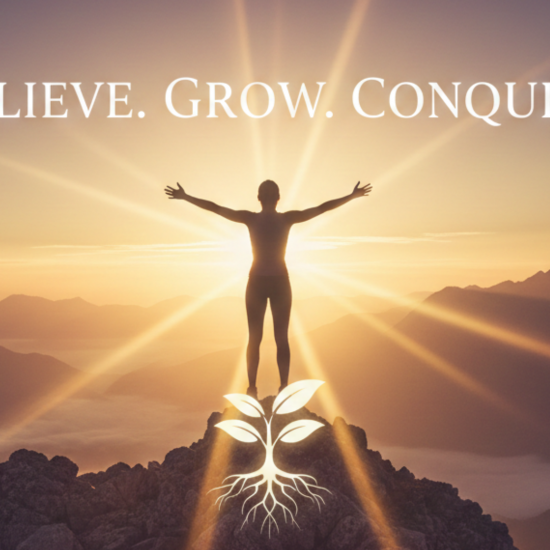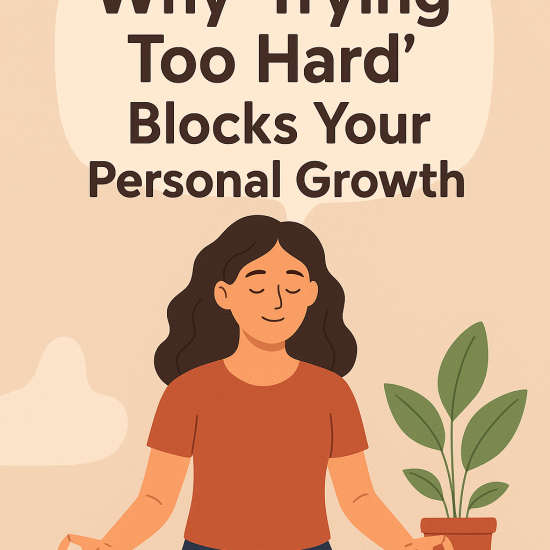Change is something we all seek at various points in life, whether it’s building new habits, switching careers, healing emotional wounds, or leveling up our self-worth. Yet, for most of us, change doesn’t come easily. Why? Because the human brain is wired to prefer predictability and comfort, even when our current reality no longer serves us. At its core, resistance to change is a psychological process deeply tied to fear, identity, and uncertainty. That’s where life coaching steps in. Unlike advice from friends or self-help books, life coaching is an interactive, growth-oriented journey that empowers individuals to break mental barriers and walk confidently into transformation.
Understanding the Stages of Change Model
The Transtheoretical Model of Change (or Stages of Change) was developed by psychologists James Prochaska and Carlo DiClemente. It outlines how people intentionally change behaviors through a six-stage cycle. Knowing these stages helps identify where you are, what’s stopping you, and how to move forward.
1. Precontemplation: Unaware of the Problem
At this stage, you may not realize there’s an issue that needs addressing. Perhaps your coping mechanisms are no longer effective, but you’ve become accustomed to the discomfort. You might say things like, “I’ve always been this way,” or “This is just who I am.”
How Life Coaching Helps:
A life coach doesn’t force you to see the problem. Instead, they ask powerful questions that gently open your awareness. With compassionate inquiry, they help you reflect on what’s really working in your life and what isn’t.
2. Contemplation: Awareness Without Action
Now you’re aware something needs to shift, but you’re not sure how. You think a lot, analyze everything, and may swing between motivation and fear. The inner dialogue becomes louder: “Should I change?” “What if I fail?” “Am I ready?”
How Life Coaching Helps:
At this stage, personal development coaching focuses on exploring your fears without judgment. Coaches guide you in defining your desires and core values so that you gain clarity about the ‘why’ behind the change.
3. Preparation: Making a Plan
In the preparation stage, you’ve decided to change. You’re setting intentions and trying to figure out how to go about it. However, this stage often brings on overwhelm and doubt, especially if past attempts have not worked.
How Life Coaching Helps:
A life coach collaborates with you to break big goals into manageable steps. They help set achievable, time-bound goals, eliminate distractions, and identify potential roadblocks so you’re not derailed before you even begin.
4. Action: Implementing the Change
This is where change becomes visible. You’re showing up differently, trying new things, and maybe even making bold moves. This stage feels exciting, but also vulnerable.
How Life Coaching Helps:
During this time, coaching provides structure, accountability, and emotional support. Coaches help you build new routines, strengthen self-trust, and process discomfort as it arises. They also celebrate small wins, which keeps motivation alive.
5. Maintenance: Building Consistency
Once the change has been made, the focus shifts to maintaining it. This phase is often underestimated. Many people relapse here, slipping back into old patterns when stress, boredom, or resistance resurface.
How Life Coaching Helps:
Coaching supports the internal identity shift required to sustain change. Coaches help clients embed new behaviors deeply into their lifestyle and create long-term strategies for resilience and adaptability.
6. Relapse: Learning From Setbacks
Setbacks are a natural part of any change journey. A relapse doesn’t mean failure it simply indicates that something needs attention or adjustment. It’s often a chance to learn more about yourself.
How Life Coaching Helps:
Instead of shame, coaching provides grace. Coaches help clients reframe relapses as part of the process, not a regression. Together, they revise plans, renew intentions, and build stronger foundations.
Why Change Is So Hard (Psychologically Speaking)
Several psychological factors make change feel daunting:
- Fear of failure or success
- Fear of the unknown
- Negative self-talk and limiting beliefs
- Past emotional wounds
- Identity attachment to current patterns
These internal blocks create resistance, even when we want to grow.
Example:
A person may want to leave a toxic relationship but stay because they fear being alone or feel unworthy of better love. In this case, it’s not logic that drives the decision it’s unhealed fear.
Life coaching helps bring these hidden beliefs to the surface. When you identify the emotional root of resistance, you’re finally free to shift it.
The Power of Life Coaching in Personal Development
Life coaching isn’t about fixing you, it’s about empowering you to unlock your own answers. A coach doesn’t impose solutions. Instead, they walk beside you as you explore, awaken, and take aligned action.
Let’s look at how life coaching transforms the change process:
1. Creates Clarity of Vision
Without clarity, we move in circles. A coach helps you define what you truly want, not what others expect from you. This clarity is your inner compass during times of doubt.
2. Identifies and Reframes Limiting Beliefs
We all carry inner scripts: “I’m too old,” “I’m not smart enough,” “I’ll never change.” These beliefs often go unchallenged. A coach helps you question these narratives and replace them with empowering truths.
3. Encourages Conscious Action
Instead of hustle or burnout, coaching promotes conscious, value-based actions. You make choices that align with who you’re becoming, not who you’ve been.
4. Provides Accountability and Encouragement
Change can feel isolating. A coach holds you accountable and supports you when motivation drops. They remind you of your why and reflect your growth back to you, even when you can’t see it.
5. Helps Navigate Emotional Triggers
Big changes often bring up fear, grief, guilt, and resistance. Life coaches are trained to hold space for emotions without judgment. They help you process feelings so you don’t suppress them.
6. Strengthens Self-Trust
Most people think they need motivation. What they need is self-trust. A coach helps you rebuild your confidence by keeping promises to yourself, one small step at a time.
Real-Life Example: From Confusion to Confidence
Let’s meet Ananya. She worked in finance but felt deeply unfulfilled. She had dreams of becoming a wellness coach but feared judgment, instability, and rejection.
Through life coaching, Ananya unpacked her fears, clarified her goals, and took small actions: enrolling in a certification, building a side business, and learning to market herself. Within a year, she left her corporate job and built a thriving practice helping others, just like her coach helped her.
This transformation didn’t happen by chance. It happened because Ananya had structure, emotional support, and a partner in her growth.
Why Life Coaching Works (When Willpower Doesn’t)
Willpower is a limited resource. Motivation fades. But with the right guidance, you don’t need to rely on either. Life coaching works because it combines psychology, accountability, and emotional awareness. It’s not just about “doing more.” It’s about becoming someone new.
And change that stems from identity, purpose, and self-awareness is lasting.
Are You Ready to Create Real Change?
Change is hard, but staying stuck is harder. If you’re ready to move from confusion to clarity, from fear to empowerment, it might be time to invest in life coaching. You don’t need to walk this journey alone.
At Loa Mayi, we support ambitious, intuitive, and self-aware individuals who are ready to grow with purpose. Whether you’re in a life transition, seeking clarity, or craving deeper fulfillment, our coaching is designed to support every stage of your evolution.
Change Is a Journey, Not a Switch
Transformation doesn’t happen overnight. It unfolds in cycles, stumbles, and breakthroughs. What matters most is that you keep moving forward even when it’s uncomfortable.
Life coaching provides the support, insight, and tools you need to do just that. If you’re ready to align with your highest potential, rewrite your story, and live more fully, life coaching is your next step.
Visit https://loamayi.com to begin your transformation today.





